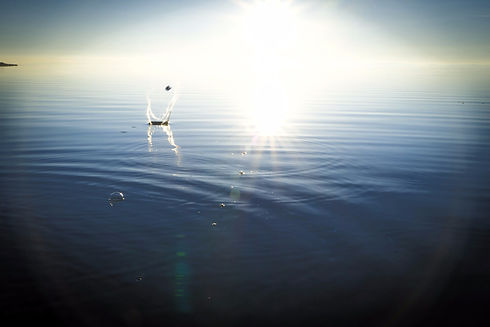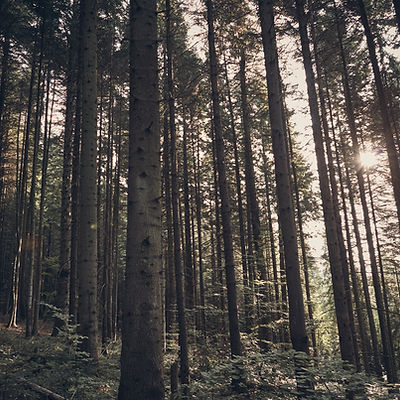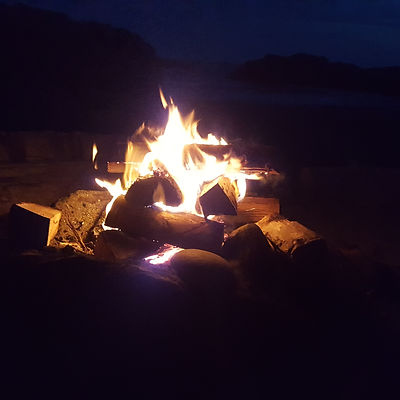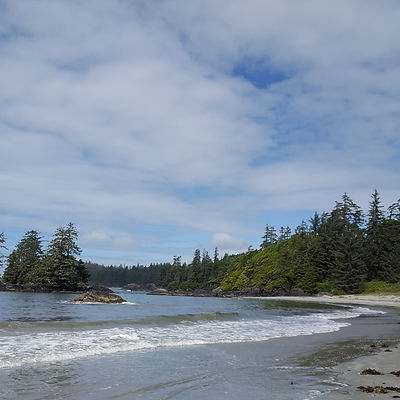
Connecting Indigenous Perspectives to Modern Education
A website created for the University of Calgary Education 530.
A compilation and summary of resources to be used in our future careers as Educators.

Contact Us
Do you have an educational resource that reflects or teaches Indigenous ways of knowing? Please share it with us so that we can add it to our website and continue to work to connect Indigenous perspectives to modern education.

Personal Reflections
How we have grown and our perspectives have shifted through the taking of this course.
"The struggle has always been inner, and is played out in outer terrains. Awareness of our situation must come before inner changes, which in turn come before changes in society. Nothing happens in the "real" world unless it first happens in the images in our heads."
Gloria Anzaldúa (2009, p. 310)

Bogdan Alexandru Georgescu
I started this course not knowing what a land acknowledgment was, not knowing what indigenous ways of knowing were, only having a vague idea of what residential schools were, not being aware of any post-colonization ideas for reconciliation, and not having any indigenous resources in soft or hard-copy.
At the end of this course, I memorized the land acknowledgment mainly because I believe it will become common practice at professional education meetings. I developed a visual essay that helped me understand the significance of the seven sacred teachings and indigenous ways of knowing the land. I have a clear understanding of what occurred in residential schools and why they failed. The word reconciliation gained new meaning through the works of Marie Battiste and the Truth and Reconciliation Commission of Canada. Finally, I have an indigenous library on my hard-drive, on my laptop, on my phone and a few indigenous personalities (guest speakers) related to my identity.
At the core of my experience through this course I developed an awareness of indigenous issues. I would like to continue this awareness through relationships with indigenous people. In this way, the theoretical side of the course will be verified in practice.

Janice Swan
The more I learn about and look through an Indigenous lens, the more I can see the natural parallels between Indigenous ways of knowing and the pedagogies that I value in Education.
Principals such as fostering an environment of belonging, student-centric educating, inclusion, growth mindset, honouring student voice and choice, and experiential learning are all vibrant parts of Indigenous tradition and philosophies that I hope to weave into my future practice as a teacher.
I will carry with me the image of a circle as I strive to both teach and be taught by my students. I will choose to practice humility and the "power of with" (Alberta Education, 2005) in my role as an educator, rather than follow in the western traditions of exercising power over my students.
My act of reconciliation will be to honour the Indigenous peoples and their ways of knowing by teaching them in my classroom. I will use the resources I have discovered and continue to look for others that will help me to do this effectively and with respect.

Breanna Irvine
This course has brought me to consider my future teaching practice and realize that I would like to give students the opportunity to challenge their beliefs, as I have been able to do through this experience. When my students are presented with new information I want them to critically think about whose perspectives are being told and whose perspectives may have been left out of the conversation. I want to include Indigenous Ways of Knowing in my classroom by bringing in resources, connecting to the land, acknowledging that the relationships between all entities are important (Little Bear, 2014), as well as the connection to the inner world (Ermine, 1995).

Melissa Bruce
“The more I learn, the more I realize how much I don't know.”
― Albert Einstein
This class has taught me so much, and yet it is very clear that I have so much more to learn. This experience, and this quote, remind me that learning is never over, it is not linear with a clear-cut start and end date. Learning is a circle, never starting, or stopping, but is a lifelong experience.
I came into this class with very limited knowledge of Canadian History before colonization, and a 'skimming of the surface education' of colonization, residential schools, and the history of the Indigenous people. This class shed light on many things I did not know and helped me to understand the importance of this history and the intergenerational trauma it has caused for our Indigenous people.
I am fortunate to have had the opportunity to take this class, as otherwise I may have never gained this knowledge. I hope to help our youth receive the education surrounding Canadian history, and Indigenous perspectives that I did not.
This course and the creation of this website have left me inspired to continue learning about and applying Indigenous ways of knowing into the classroom.

Dan Demmert
In this class I learned about the importance of presentation of information. Indigenous culture and the story of Indigenous peoples can be presented in highly impactful and relevant ways that will engage students. By bringing in an anecdotal element, such as the movie We Were Children (2012), or an Indigenous elder, it encourages students to engage with these stories while being reminded of the personhood of Indigenous peoples. This can be important in a classroom that has little experience with Indigenous people, as they may feel a lack of connection to the topic. Regardless of your race, the onus does not fall on you to tell the stories of others.


